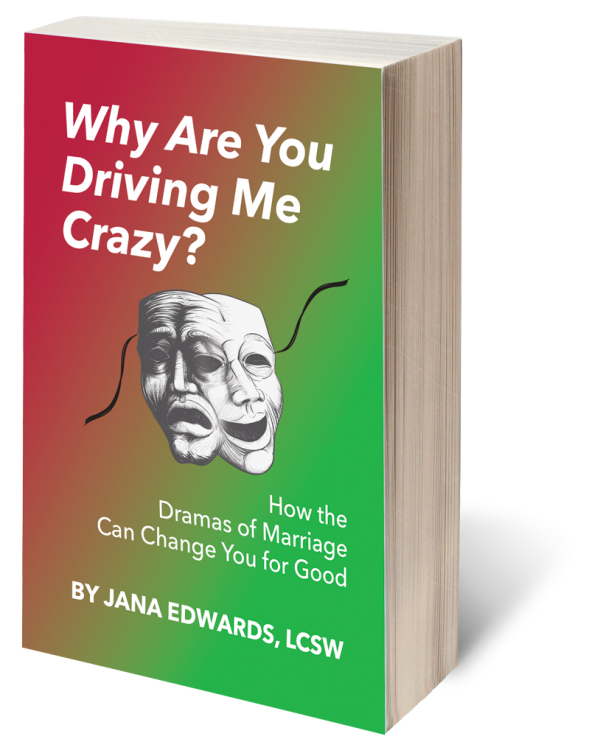Book Excerpt
Many experts who have written about the psychology of relationships have used the words “dramas” or “scripts” to describe the daily interactions that occur between family members. All of us have experienced what it’s like to be caught up in an emotionally charged scene with a person who is important to us. We find ourselves behaving in ways that we usually don’t, we may feel like a child, and we have trouble thinking clearly. We are flooded with emotions and have an overly intense investment in how we want the “drama” to end that is often at odds with what the other person wants.
Couples develop repetitive patterns of relating to each other that simultaneously re-create in both partners the crazy-making feelings of their childhoods. These dramas of marriage are a part of nature that always occurs in intimate relationships. The scenes that comprise these dramas may bear a striking similarity to actual scenes from both partners’ childhoods, or they may be more creatively camouflaged. But the point is that they will cause both partners to relive precisely the emotions that are stored in their [brains] and waiting to be [experienced]….
…(T)his book is devoted to helping you and your partner learn how to stop driving each other crazy by turning your recycling dramas into repairing dramas…. Transforming recycling dramas with repetitive endings into repairing dramas with new endings is the great hope and promise of marriage. Intimate relationships in which this transformation does not occur will eventually deteriorate—sometimes into divorce, sometimes into constant fighting, sometimes into boredom, and sometimes into a form of permanent distance that looks like tolerance. Couples who do accomplish this transformation will experience the immense joy of healing each other for good and having the most fulfilling life together that they could have imagined….

Katherine and John’s repairing drama
Katherine: “How are you coming on that paper you have to do for your class?”…
John: “Stop pushing me about that paper. It’s none of your business if I’ve finished it.”
Katherine: “What do you mean it’s none of my business? We’re in this relationship together, and I care about how you’re doing with your class.”
John: “No, you don’t. You just want to tell me what to do.”
Katherine: [beginning to cry] “You know, this kind of reaction from you always makes me so sad. You don’t know anything about what caring is. Your parents never cared enough to make you grow up. So here you are stuck with having to finish college now. And all those credit card debts you have—those are their fault, too.”
John: “Now wait a minute. They were doing the best they could.”
Katherine: “That’s true, but you got hurt in the process. They were having marital problems, and your mother wanted to come to you as her ‘friend’ instead of being your mother. And now you feel obligated to take care of your father since their divorce, instead of being able to focus on taking care of yourself and us.”
[John pauses to stay safe and access his own feelings about his father. Katherine gives him plenty of time to feel his emotions.]
John: “He’s such a sad, lonely man. I feel so sorry for him.”
Katherine: [tolerating both her and John’s sorrow] “Yeah, and I don’t want you to end up that way.”
[John pauses again. He’s never thought of it this way.]
John: “Maybe you’re right. It’s his own fault that he’s alone. He has never taken any responsibility for having the life he wants. And I get tired of doing everything for him.”
Katherine: “Like I have to do for you?”
[John feels stunned, but he doesn’t react defensively. He allows his childhood pain to surface.]
John: “I’m so sorry. I guess because I didn’t want to see my parents as not caring I haven’t been very caring toward you.” [taking responsibility]
Katherine: “They were just too caught up in their own problems, like my parents. But we can do better for each other.”
John: “That’s what I want to do.”
[Their conversation ends with an embrace.]



